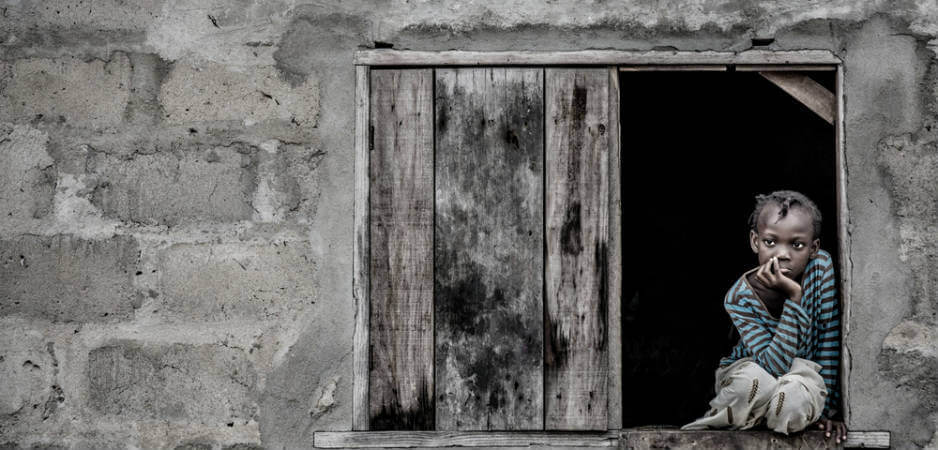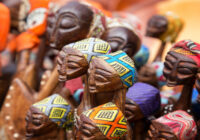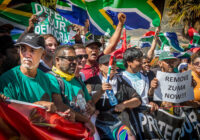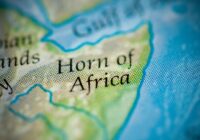Across Africa, armies and police forces regularly prey on civilians, with women and children enduring the worst abuse.
In December 2017, The New York Times exposed its readers to a horrific reality Nigerians have known about for years: the plight of female refugees and survivors from northeastern Nigeria who endure the deprivations of both Boko Haram and the security forces responsible for their safety.
Of course, The Times’ was only the latest example of outside journalists and human rights groups uncovering the epidemic of rape and sexual abuse facing Nigeria’s internally displaced women. In October 2016, Human Rights Watch (HRW) documented the abuse (including rape and exploitation) inflicted on 43 women and girls living in seven internally displaced persons (IDP) camps in Maiduguri, capital of Borno State and the epicenter of the Boko Haram insurgency.
Unfortunately, the story of 14-year-old Falmata shows how little has been done to protect IDPs since HRW raised the alarm. Having escaped the horrors of captivity and repeated rape at the hands of Boko Haram, she faced the same kind of sexual violence after having mustered an escape from her captors, this time in the hands of the very soldiers supposed to protect her. Her account of the ordeal illustrates the impunity perpetrators enjoy: “The same day I was brought there, soldiers started coming to rape me. They did it one after another. I’m not even sure those two knew about each other.”
Nigeria’s President Muhammadu Buhari ordered an investigation into the alleged rape of women and girls by security forces and officials in IDP camps in 2016. Despite his own status as a former general, President Buhari has nothing to show beyond some scattered arrests and the (long overdue) deployment of female soldiers and police officers to the camps. Now, even those arrested in his probes have seemingly escaped prosecution or disciplinary action.
This lack of effective oversight over the campaign against Boko Haram has proved lethal. In 2015, Amnesty International publicly named nine senior military commanders responsible for the deaths of over 7,000 men and boys and more than 1,200 extrajudicial executions since 2011. In June 2017, a military panel dismissed all charges against them, citing insufficient evidence. An independent investigation into the allegations promised by Buhari two years ago has yet to commence.
It may be tempting to cite Buhari’s ongoing health issues as an excuse for his failure to act more decisively. In context, however, the failure to punish sexual predators within the armed forces offers yet another example of his electoral promises of transparency and accountability turning out to be nothing more than obligatory lip service. Nigeria sorely needs concrete reforms to instill discipline and promote transparency in civilian relations with the armed forces. Thus far, Buhari has not delivered.
This may look like a primarily Nigerian problem, but the reality is far from it. In practically all conflict zones across the African region, armies and police forces regularly (if not systematically) prey on civilians. From false promises of marriage to outright rape, vulnerable children and women often face the worst abuse.
Beyond Nigeria, many prominent cases have come from the Democratic Republic of Congo (DRC) recently, where embattled President Joseph Kabila is resorting to autocratic methods to extend his 17 years in power. Kabila’s term officially ended in December 2016, but he has tactically employed a combination of political repression and duplicity to extend it. These include forcing the judiciary to sentence Moise Katumbi, a former governor of the Katanga Province, who is widely tipped to succeed Kabila if and when elections are held, to 36 months in absentia for selling a property illegally. The charges against Katumbi are widely considered to be politically motivated, forcing him to continue his fight for a democratic transition from Europe.
While Kabila’s opponents have remained resolute in their opposition to his continued rule, the same cannot be said for the country’s internal security. The political crisis has worsened ongoing conflicts in regions like Kasai, where 3 million people are at risk of starvation and 1.5 million have been forced from their homes. The Kasai conflict has been marked by dozens of gruesome mass graves; according to the United Nations, Kabila’s army is responsible for digging (and filling) most of them.
Unlike Buhari, Kabila does not bother paying lip service to transparency and the rule of law. Instead, his security forces have repeatedly attacked and killed opposition demonstrators since the start of the election crisis. It is disheartening to see supposedly democratic Nigeria perform no better than the DRC’s corrupt and autocratic regime on security or accountability indexes.
Even the United Nations and Western governments like France cannot prevent sexual violence and fatal human rights abuses under their watch. UN peacekeepers from the Republic of Congo and the DRC have been accused of sexually exploiting women and girls in the Central African Republic (CAR). From 2013 to 2014, French soldiers deployed to the CAR also allegedly raped and abused multiple children.
However, the tireless work of human rights organizations, who create the transparency that African governments and their international partners do not, is the one saving grace in the situation. Groups like Amnesty International and Human Rights Watch have done much of the heavy lifting to expose abuses and violations in Africa’s conflict zones. Thankfully, their efforts do not always fall on deaf ears. In the DRC, a landmark judgment issued in December 2017 has seen a sitting Congolese MP and 12 members of his militia convicted of rape and crimes against humanity.
Human rights defenders and journalists put their lives on the line to report on these issues. They need greater support, protection, and cooperation from the governments whose jobs they are doing. Though it seems farcical to expect Kabila to commit to the principles of transparency and accountability, Buhari can and should be a more eager partner.
The views expressed in this article are the author’s own and do not necessarily reflect Fair Observer’s editorial policy.
Photo Credit: BOJStudios / Shutterstock.com
Support Fair Observer
We rely on your support for our independence, diversity and quality.
For more than 10 years, Fair Observer has been free, fair and independent. No billionaire owns us, no advertisers control us. We are a reader-supported nonprofit. Unlike many other publications, we keep our content free for readers regardless of where they live or whether they can afford to pay. We have no paywalls and no ads.
In the post-truth era of fake news, echo chambers and filter bubbles, we publish a plurality of perspectives from around the world. Anyone can publish with us, but everyone goes through a rigorous editorial process. So, you get fact-checked, well-reasoned content instead of noise.
We publish 2,500+ voices from 90+ countries. We also conduct education and training programs
on subjects ranging from digital media and journalism to writing and critical thinking. This
doesn’t come cheap. Servers, editors, trainers and web developers cost
money.
Please consider supporting us on a regular basis as a recurring donor or a
sustaining member.
Will you support FO’s journalism?
We rely on your support for our independence, diversity and quality.







